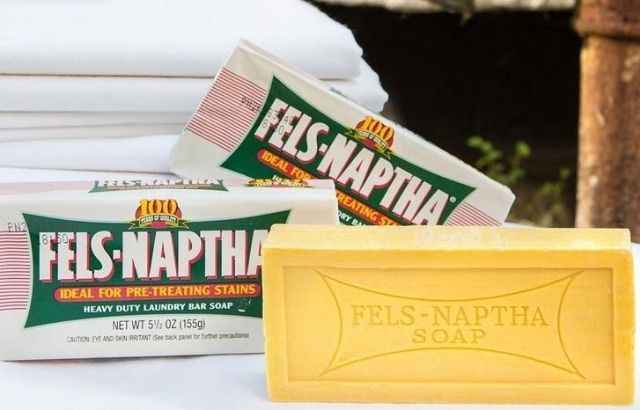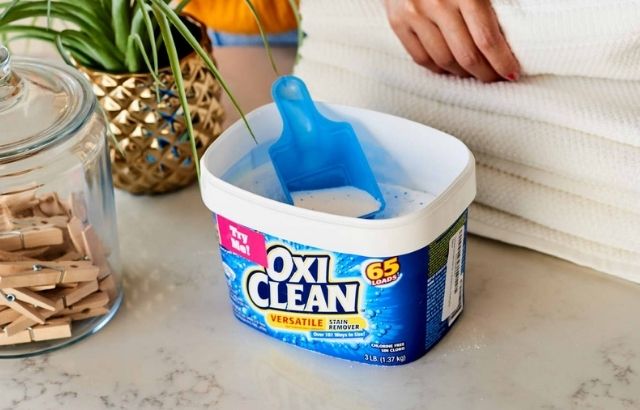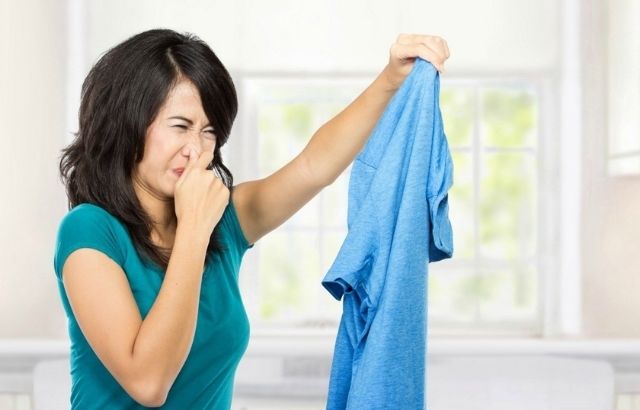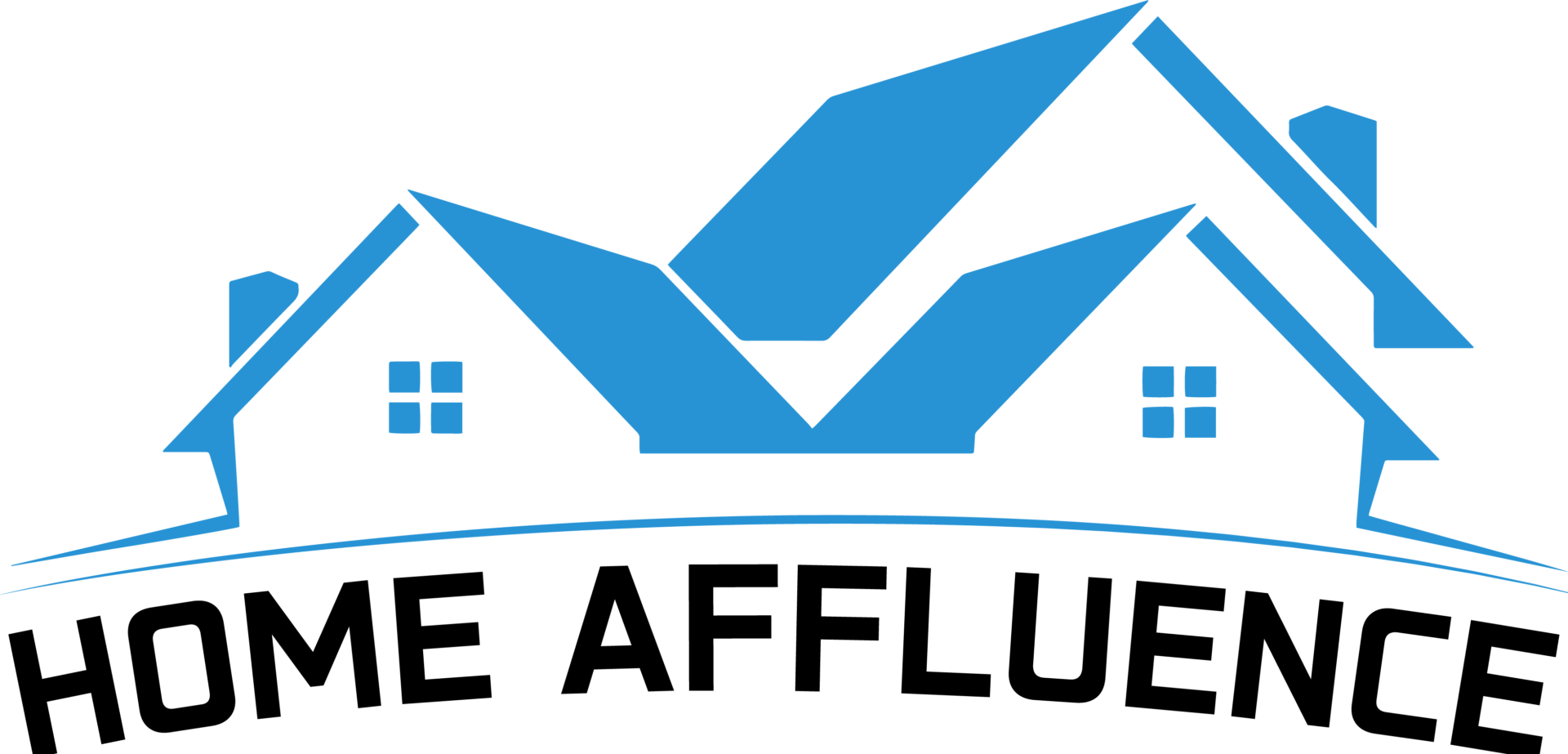The laundry soap composition is fatty (up to 72%) and alkaline (pH 11-12 is considered the maximum acceptable for human skin). It is made from animal and vegetable fats, so all ingredients are natural and do not cause allergies. Bleach, on the other hand, is an acidic substance that kills bacteria. So soap is an excellent disinfectant and dirt remover from any surface. And since laundry soap is relatively cheap, it is still one of the main assistants in everyday life. In this article, I will tell you how to use laundry bar soap.
How to Use Laundry Bar Soap
Today, people have hundreds of different tools for cleaning and washing. But laundry soap remains a constant favorite of older women because its use in everyday life is effective and environmentally friendly. It is favorably distinguished from other laundry detergents by the absence of aggressive chemicals. Also, laundry soap is universal.
They show the amount of fatty acids. The formulation has more of them, which improves how well the soap resists dirt and bacteria. Dark colors indicate that the bar soap is natural, whereas light colors denote the presence of outside additions like bleaches and scents. On the counter of practically every shop are anonymous bits of laundry soap.
Although it is inexpensive, many people find its look and distinctive scent repulsive. This is often the sole explanation for its low demand. The superfatting proportion was kept at 0–1 percent. In daily life, laundry soap is quite useful and provides benefits that other detergents do not. This bar combines efficiency, economy, naturalness, hypoallergenicity, environmental friendliness, and adaptability.
For washing
The French invented the first laundry soap. It was made from salt and olive oil and was used to clean and disinfect dirty laundry. Later, animal fats were included in the composition. The main advantages of using laundry soap for washing clothes: it has a high pH – 11-12 units (pronounced alkaline reaction); works effectively even in cold water; acts as a bleach and stain remover; not only washes but also disinfects things. Laundry soap has proven itself especially well in the following cases.
Newborn clothes
In the first months after birth, it is strongly recommended to use special phosphate-free powders for washing baby clothes. But even they often cause allergies and dermatitis. But laundry soap does not cause negative reactions.
Wool
After washing with laundry soap, woolen items become splendid, and their original softness returns.
Removing stains
Laundry soap copes well with various types of dirt: fruit stains, grease, sweat traces, coffee. To remove them, you need to moisten the thing with hot water, rub it with dry soap and hide it for two hours in a plastic bag. After the specified time, the clothes should be washed as usual.
Whitening
Laundry soap can be used to bleach gray bed linen, socks, and fabric. To do this, rub 2 bars of liquid soap into a large saucepan (10 l), pour water, and place the laundry in it. Then it would help if you put the container on fire and slowly heat it for 1 hour. Things will turn white again. It is preferable to wash with laundry soap by hand: it will leave a coating on the parts in the washing machine. This will lead to premature failure.
Fifty years ago, there was only one List washing powder on sale. But we bleached the laundry with laundry soap. A bar was chopped with a knife, poured with hot water, put on the stove, boiled for 30-40 minutes, and then washed and rinsed. I ended up mixing laundry soap flakes in around a 50%/50% mixture with washing soda. No bleaches and the linen were always clean and white.
For cleaning
Laundry soap is the first assistant in putting things in order and cleanliness. One bar can clean almost the entire apartment.
Washing laminate
It is known that laminated flooring is quite whimsical. Streaks often remain on it. It cannot be wetted and washed with aggressive chemicals. Laundry soap is ideal for cleaning laminate flooring. It is enough to dissolve 5 tbsp. in 3 liters of warm water. Tablespoons of shavings and wipe the floor first with soapy water and then clean. To avoid streaking, it is recommended to use a microfiber cloth.
Low-cost floor cleaner
Compared to laundry soap, special floor cleaners are expensive. Soap allows you to save on household chemicals significantly. To make the block last for a long time, rub it on a grater, dissolve it in 1 liter of boiling water, add 3 tablespoons of vinegar and 7 tablespoons of baking soda. You can store the product for two weeks in the dark and cool.
For dishwashing
Laundry soap is truly a universal remedy. It can be used not only for washing clothes and cleaning the apartment but also for washing dishes. It is an environmentally friendly product. The ingestion of insignificant soap residues from the dishes is not as bad as the ingestion of surfactants from detergents. The latter are carcinogenic and increase the risk of developing cancer. Also, laundry soap rinses off better. There are two ways to use it for dishwashing.
Liquid soap
To prepare a dishwashing detergent, you need to mix one glass of boiling water, a quarter of a baking soda pack, and half a glass of grated soap. The mass should then be put on a slow fire and heated for half an hour, constantly removing the foam.
Universal remedy
The remnants can be broken or grated, then pour boiling water in a ratio of 1: 3 and beat with a blender after 3-4 hours. The resulting product is good for washing things, washing the floor, toilet, and other plumbing. You can use it to wash dishes, jewelry, toothbrushes.
Clean up the plumbing
Soap shavings are a versatile cleaning agent, and when mixed with mustard powder, you get a paste for the stove and sink.
Wash vegetables
Carrots, beets, potatoes, and other root vegetables bought in a store or at the market, as well as chicken eggs, can be treated with soapy water (this is done to prevent salmonellosis.
Treat plants from pests
Soap helps to deal with aphids and other garden pests. At the same time, the soap solution is completely safe for plants. The solution can be used not only in the garden but also for indoor plants.
Get rid of acne
Once every two weeks, you can wash your face with laundry soap, which dries the skin and kills bacteria.
Wash toothbrushes or dishwashing sponges
Since soap is an excellent antiseptic, soaking a sponge or brush in soapy water overnight will disinfect them. This is important if someone in your family is sick.
Relieve swelling and prevent bruising
If the site of the injury is treated with soap, then there will be no bruise. To do this, you need to dilute the soap in water and wipe the injury site with a solution. The procedure can be repeated several times.
Eliminate infection
If you cut, prick or scratch yourself, wash the damaged area with laundry soap. Exactly in this way, you can treat sensitive skin after depilation to prevent irritation and the occurrence of pimples. Then one day not long ago, I got a freakish rash over more than 30% of my body.
Soap is also used for dog or cat bites. To prevent infection from getting into the wound, you need to let the blood drain and then apply gauze soaked in a solution of laundry soap and bandage it. The bites will heal faster, and the wound will not become inflamed.
How to Use Tide Soap
Procter and Gamble make a popular laundry detergent called “Tide” available in many countries around the world. In 2004, Procter and Gamble launched a Tide laundry detergent bar for consumers in India. Unlike tide powders and liquids, a washing machine is not required when using the soap bar. Using a homemade laundry detergent takes a little more effort than throwing your fabrics in a washing machine. However, with a little work, you can clean your clothes.
Step 1
Examine the garment and write down any stains that you can see.
Step 2
Soak your garment in a sink or bucket of warm water. Moisten the rod by submerging it in the water.
Step 3
Rub the wash stick over each stain for ten to thirty seconds. Use a wash brush to scrub the stains.
Step 4
Soak the garment in soapy water for a few minutes before rinsing it off. Soak the garment overnight if there are stubborn stains on it.
Step 5
Remove the garment from the sink or bucket. Drain the water. Fill the sink or bucket with fresh water and soak the garment in water to remove any soap residue.
Step 6
Pinch the garment and hang it on a clothesline to dry.
How do you use Zote?
Zote has long been used in many Mexican homes. This is a bar of soap for washing, based on natural ingredients such as sebum (animal fat), coconut oil, and citronella. It also contains an optical brightener, which whitens clothes without fading or damaging color. Zote Laundry was mainly used to wash clothes, especially in rural Mexico, where washing machines were not available. Today Zote is popular for washing clothes due to its cleaning properties and handling delicate fabrics with care. You can use it in various washing situations.
Step 1
Hand washes delicate garments with the Zote. Fill a sink with warm water and dampen your clothes. Rub the clothing with the Zote stick until it starts to foam. Rinse clothes with water until soap disappears. Hang the clothes up to dry.
Step 2
Use a Zote stick to treat stains before washing. Rub it into dirty areas of clothing, especially the neck ring and underarms. Machine wash as usual.
Step 3
Mix your liquid laundry detergent with Zote. Bring three glasses of water to a boil in a saucepan. Then you need to remove it from the fire. Rub a Zote stick into hot water and stir until it dissolves. Fill a different enormous stockpiling compartment with three gallons of boiling water. Pour in the dissolved Zote bar. Add a glass of borax and a glass of baking soda and stir until all ingredients are dissolved. Machine washes, as usual, adding three-quarters to a cup of Zote Liquid Detergent.
Step 4
Create laundry detergent with Zote. Rub the Zote cup into a small storage container. Add half a cup of borax and half a cup of sodium carbonate; mix them. For regular loading of laundry, put a large tablespoon of detergent in the washing machine. Use two tablespoons for large loads or heavily soiled items.
Step 5
Use Zote to make very soft towels and bedding. Place a small piece of Zote in a sock or knee-high stocking and tie the end in place. Please place it in the washing machine for the last wash. After the washing machine completes the rinse and spin cycle, dry the towels and bedding as usual.
How to Use Laundry Bar Soap: Frequently Asked Questions
How do you wash clothes with bar soap?
You can use laundry soap or a regular bath bar to hand washes your clothes, shave them a little in hot water to dissolve them, or clean the dirtiest areas with the bar. Choose oil-free sticks or skin softeners to prevent blemishes.
Can I wash clothes with bar soap?
Yes, fill the sink or sink with water; usually, the room temperature is better. Add detergent or soap such as Delicate Wash and mix to take a bath. Submerge the item in water, whisk the water and detergent with your hands, and let it soak for up to 30 minutes.
Can I put a bar of soap in the washing machine?
Yes, dissolve the grated soap in boiling water and add it to the washing machine.
Last Words
We believe you enjoyed reading through this article a lot and have learned how to use laundry bar soap and other important subtopics discussed in it.




